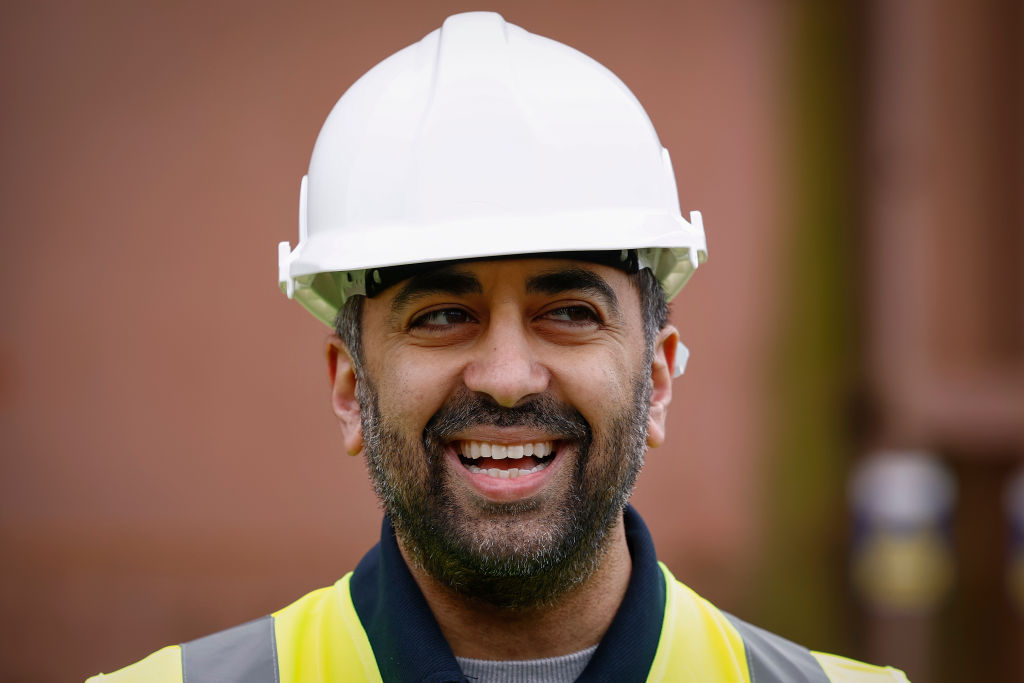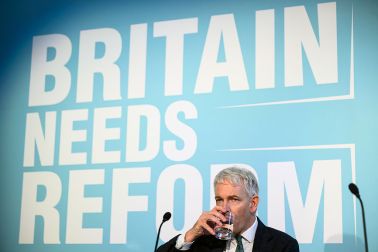Humza Yousaf is the new leader of the SNP and in the coming days will be sworn in at the Court of Session in Edinburgh as the county’s sixth first minister. He inherits a bickering party and almost a decade of electoral stalemate over independence.
It is far from clear what legacy his predecessor leaves in her wake. She took the SNP Alex Salmond built and cemented it as Scotland’s natural party of government, winning election after election with seemingly little effort. But many would argue she has left the country in no better shape than the day she took over in November 2014.
For Yousaf to be a success he surely must look beyond maintaining that nationalist electoral dominance and drag the country forward. The Spectator’s data hub will track various metrics throughout his first ministership. This is what we think he should be judged on:
1. Starting with the obvious… support for independence
Speaking to Scottish government officials in the last few weeks it’s clear many think the dream of an independent Scotland now really is over for a generation – and a decades-long generation at that. But the dream is not over yet for the SNP’s members and its core supporters. For them, Humza will have to reverse the slide in the polls for independence and build support for the nationalists’ raison d’etre.
2. Education, education, education
‘I want to be judged on this’, Sturgeon said of the attainment gap – how well the poorest and richest Scots do at school and university. Failing to make any meaningful progress in closing that gap is, to many, her greatest failing as Scotland’s leader. Yousaf will want to do better than his predecessor:
3. Improve access to universities
The SNP pride themselves on free tuition for Scottish students. But there is little evidence the policy has had any progressive effects. Unis effectively cap the number of Scottish students so that they can take more students from England and overseas who can be charged full fees. As a result, free tuition as it stands is more a middle-class subsidy than a tool for social mobility. Fixing that should be near the top of Humza’s to-do list.
4. Stop the drug deaths
That hundreds die every year from drug-related deaths – nearly four times more than anywhere else in Europe and two-and-a-half times more than anywhere else in the UK – shames Scotland. Last year drug deaths dropped in Scotland for the first time in eight years, but it was still the second highest number of deaths in a single year on record. To be seen as anyway successful Humza has to get the deaths down.
5. Fix the NHS
It’s fair to say Humza has found ministerial posts challenging, from driving without insurance as transport minister to a brief attempt to criminalise dinner table debate during his time as justice secretary. But he is perhaps most notorious for his record as health minister, which led to NHS chiefs saying the health service was about to ‘fall over’. Getting waiting times down and improving patient outcomes are a must if he doesn’t want his track record to follow him to Bute House.
6. And halt the decline in life expectancy
There’s debate about how much of the fall in Scottish life expectancy – which fell by more than 11 weeks for men and eight for women in the last update – is down to Covid and how much is down to factors unique to Scotland. But in truth, life expectancy had been stalling in Scotland long before the pandemic. So called ‘deaths of despair’ (drugs, alcohol and suicide) are 18 per cent higher in the poorest parts of Scotland than the richest. But in England these deaths only account for about a sixth of the life expectancy wealth gap. Any successful government must at least try to close these gaps and get the life expectancy graphs back in the right direction.
7. Make Scotland economically viable
Key to the independence vision is for Scotland to join the EU. But that is likely to require getting the deficit down closer to 3 per cent of GDP – the rule set by the Copenhagen Criteria. Last year, Scotland’s was 12 per cent, larger than almost anywhere in the OECD. For unionists this is the United Kingdom’s dividend. Scotland can spend more on the public (£125 per head pre-pandemic, for example) with no need to think about balancing the books. But if independence is still the dream then tackling economic realities has to become a priority.
8 ...which includes growing the tax base
Newspapers splashed this morning on an announcement from Humza that one of the first things he’ll do in office is bring in a wealth tax to help fund the Scottish Child Payment. But the truth is that there are not a huge number of wealthy Scots to tax. Already across the UK the best paid 1 per cent make up nearly a third of all income tax paid. As it stands even now, those ‘super wealthy’ higher and additional rate payers make up just 15 per cent of Scotland’s population but account for some 60 per cent of its income tax take. To grow the government’s income he will have to look at growing the entire tax base – not just squeezing more from the top.
9. Get the Covid inquiry on the road
The UK Covid inquiry has been criticised for its glacial pace. But at least it’s moving. Scotland’s has been delayed after the chair and four lawyers resigned over behind-the-scene tensions. The government is now paying academics £550 a day for nearly £300,000 worth of research to aid the inquiry. Total costs have now passed £2 million but the inquiry has not yet heard a single piece of evidence.
10. Launch the boats
While Rishi Sunak focuses on stopping the boats, Humza needs to focus on launching just two. Shipbuilding insiders now fear the Glen Sannox and the unnamed Hull-802 will never sail. For a country that once built a fifth of the world’s ships this would be nothing short of humiliating. The thud at the end of decades of industrial fall.







Comments